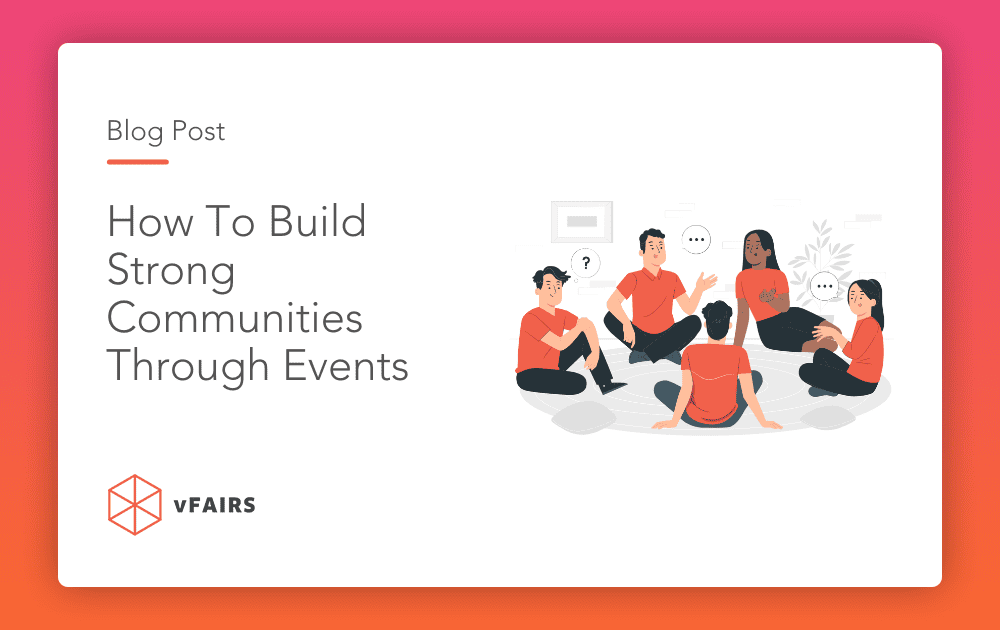Communities are a key player in building networks, developing product advocacy and an overall support system for all stakeholders involved. Today, global communities are a norm; with most relying on digital platforms. But what strengthens them are community events.
Have you ever attended community events where you felt like you belonged and left feeling motivated and inspired? Then, not only did you get real value out of the event, the hosts succeeded in achieving their event goal.
Events bring people together as they create memories that will last a long time. The fast-paced life makes it challenging to find time to build meaningful relationships with others, but events can help bridge that gap. Events, whether in person, virtual, or hybrid, are a great way to meet new people, learn new things and grow as individuals and as a community.
The Importance of Community Events
Events are an exciting and dynamic way to engage with audiences, and they offer a variety of benefits that are simply unmatched by other marketing channels. For example, one of the most significant advantages of virtual events is their cost-effectiveness, as they provide a highly affordable alternative to expensive in-person gatherings. Moreover, as the world moves towards a cookieless future, events have become a critical data-rich touchpoint, enabling businesses to gain valuable insights into their audiences’ behaviors, preferences, and interests.
While virtual events have their advantages, physical presence still holds a unique value in creating an emotional connection with attendees. Being physically present at an event provides a sense of belonging, community, and identification that one cannot replicate digitally.
As such, community events remain an essential tool for businesses looking to connect with their audiences and create a lasting impact. They offer a truly unique and powerful way to engage with people, build relationships, and create meaningful experiences that leave a lasting impression.
In this blog, we’ll look at how events help people build connections, create shared experiences, and help communities thrive.
1. Building Connections and Relationships
The opportunity to socialize with others is one of the main advantages of community events. They give you a chance to make connections and new friends. At events, people can meet individuals with similar interests, share ideas, and have deep conversations. These interactions can lead to new friendships, business partnerships, and collaborations. For example, in-person community events focusing on a specific cause can bring together its advocates and give them a chance to work together.
2. Fostering Learning and Personal Growth
Events also provide attendees with a unique opportunity to learn new things and grow as individuals. They give professionals a place to share their knowledge, thoughts, and experiences with others. Virtual community events focusing on a single industry, for example, can provide attendees with the opportunity to hear from industry leaders, learn about current trends, and obtain new skills. These events can motivate attendees to pursue new opportunities, challenge their current viewpoints, and promote personal development.
3. Strengthening Community Bonds
Events allow communities to come together and build their ties. Attendees can interact with one another, share their mutual interests, and create memories whether the event is virtual or in-person. These gatherings can develop a sense of belonging, community, and friendship. A neighborhood party, for example, can bring locals together, fostering a strong feeling of community and bonds among neighbors.
4. Boosting Local Economies
In-person events help build local economies by attracting tourists and delivering a boost to local companies. A large-scale event, such as a music festival, can attract thousands of tourists to a city, benefiting local hotels, restaurants, and shops. Additionally, events can assist in promoting a city, region, or country as an attractive vacation destination, resulting in future economic benefits.
5. Encouraging Community Engagement and Activism
Community events have the potential to motivate attendees, resulting in increased participation and activism. A virtual or in-person event, for example, focusing on a certain cause might allow attendees to connect better with the issue at hand by having insightful conversations with community members and equip themselves with the right tools to take action.
How To Choose The Right Event For Your Community
Choosing the right event for your community can be a daunting task, but it’s essential to ensure that you deliver an experience that resonates with your audience and meets your business objectives.
Budget is the first factor to consider when selecting an event mode. If you have a limited budget, you might choose to host virtual community events, which will increase your audience while costing less. An in-person event, on the other hand, can be the ideal chance to provide your attendees with a fully immersive experience if you have a larger budget.
Second, the event mode you choose should reflect member preferences. Think about what your community likes and what will encourage people to attend. For example, if your members are health and wellness enthusiasts, an outdoor exercise class or retreat may be more appealing than a networking event.
Ultimately, the objectives of community events should determine the mode you choose. Are you hoping to increase brand recognition, bring in new business, or create stronger ties with your community? Each of these goals can call for a distinct event type, such as a trade show, conference, or networking event.
In-Person Events: Building Strong Connections
In-person events offer a unique opportunity for community members to connect in a more humanized and personal manner. In-person conversations tend to be more memorable as they give a closer look at the other person’s personality and soft skills. Attendees’ physical presence allows for more in-depth and meaningful conversations, which can lead to establishing new relationships and strengthening existing ones.
Virtual Events: Connecting Communities Remotely
Virtual events enable community members who are unable to attend in-person events to participate and feel included. Attendees can participate in virtual community events from anywhere with an internet connection, giving them greater freedom. Virtual events also provide a higher level of involvement and interaction through technologies like live chats and Q&A sessions, which enhance engagement and community building.
Hybrid Events: The Best of Both Worlds
Hybrid events blend the greatest characteristics of in-person and virtual events. They enable both in-person and virtual attendees to participate in the event, giving the community a broader reach and accessibility. Another significant advantage of hybrid events is that the host can use one platform to manage both event aspects and attendees can connect with everyone regardless of how they’ve joined the event. Overall, hybrid community events make it possible for individuals from diverse backgrounds to come together and have conversations.
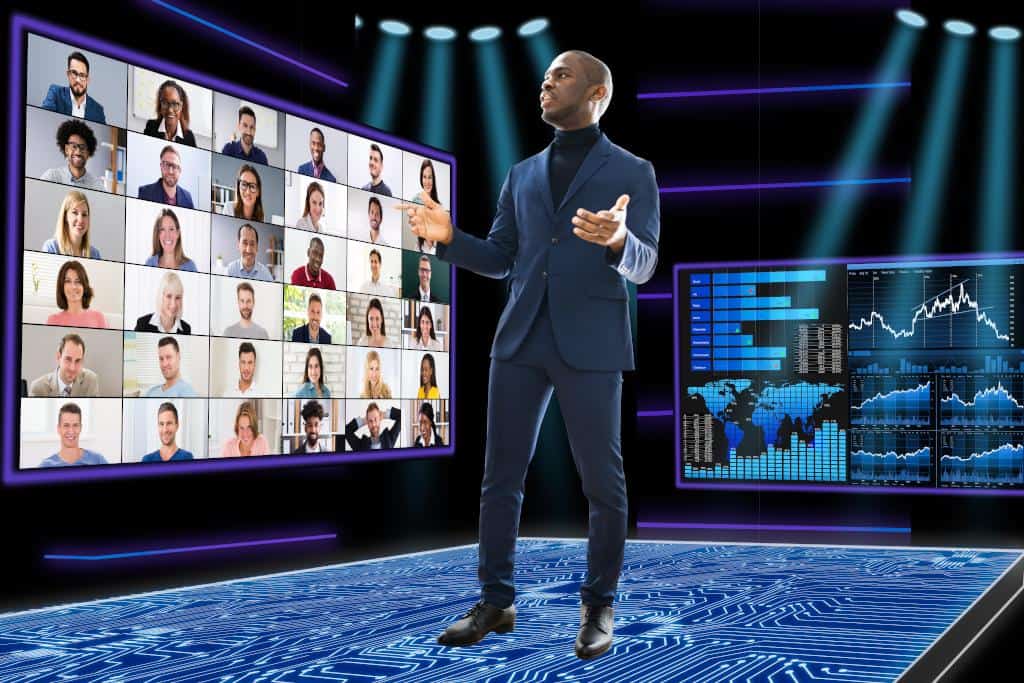
How Different Event Types Can Help Communities Grow
As a community manager, it can be overwhelming to decide which events will best serve your community’s needs and keep them engaged. However, by understanding the unique benefits of each type of event, you can create a well-rounded event strategy that will keep your community members interested and coming back for more.
Networking Events
Whether held in-person or online, networking events and happy hours are essential for building relationships and fostering community. These events provide a relaxed and informal environment for attendees to get to know one another and build meaningful connections. They are also an excellent opportunity to gather feedback from your community, allowing you to better understand their needs and preferences.
Breakout rooms and roundtables are another fantastic way to provide education and foster discussion around a specific topic. They allow for more interactive and personalized experiences, providing ample opportunity for attendees to ask questions and engage in meaningful discussions. These events are perfect for providing in-depth knowledge on specific topics, and for building deeper relationships between attendees and presenters.
NYU’s Virtual Career Conference was a two-day online networking event that is a worth-mentioning example here. Over 130 students registered for the event and expressed satisfaction with the unique experience.
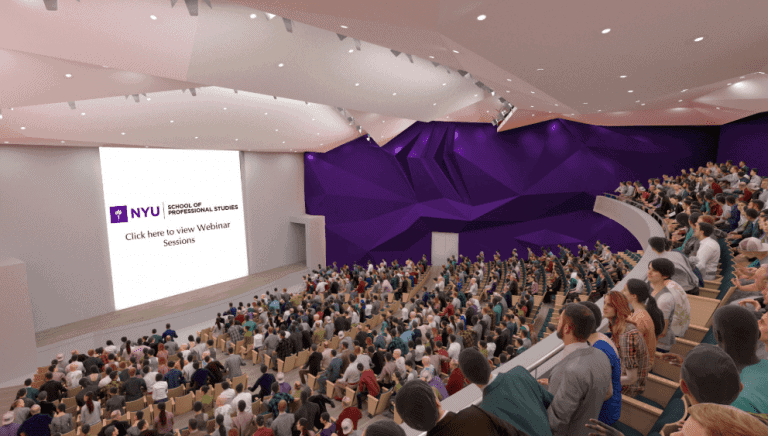
Conferences
Conferences are excellent for creating a sense of shared experience and building industry knowledge. They allow attendees to engage with thought leaders, learn about new trends and technologies, and build valuable connections. In the case of virtual conferences, they are incredibly flexible, allowing you to bring in speakers and attendees from all over the world, making it easy to tailor content to specific interests.
The American Astronomical Society (AAS) hosted its first virtual conference with vFairs, where they exchanged the latest scientific developments, interacted with fellow members, and showcased their research within their particular domains. The virtual conference proved to be a hit as they saw an increased attendance rate. Attendees loved the immersive experience and the interactive engagement features.
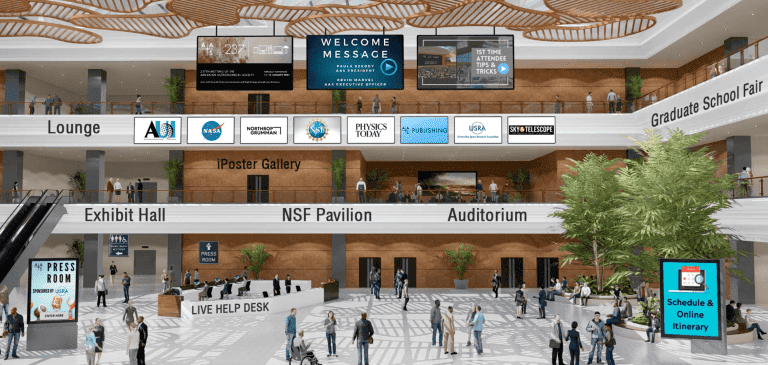
Trade Shows
Businesses, organizations, and individuals in a specific industry or area of interest benefit come together as a community at a trade show. These events can also generate significant economic activity for communities by bringing in visitors from out of town. This can help to boost the local economy, create jobs, and increase tax revenues.
An excellent example here can be the Harbor Wholesale virtual food trade show which resulted in a 35% increase in sales. The virtual event also saw a surge in new customers and the exhibitors loved it.
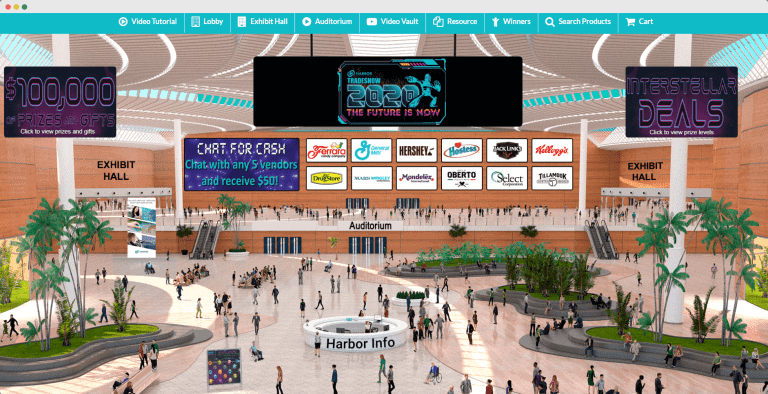
Hiring Events
Job fairs or career fairs can be an effective way to provide opportunities for job seekers to connect with potential employers and learn about available job openings. By creating new jobs and providing opportunities for individuals to develop new skills, job fairs can contribute to the overall economic growth of the community. This can attract new businesses, increase consumer spending, and ultimately improve the quality of life for residents.
A worth-mentioning event here is the Nestlé Green Skills Week 2022 event that was set up to help support the goals of the Nestlé Needs YOUTH program. The goal of the event itself was to help young people develop themselves in a way that will help them find a job and kickstart their careers. Attendees at the Nestlé Green Skills Week were able to interact with Nestlé experts through a series of interactive presentations within the virtual auditorium. The overall feedback about the event was positive, with attendees rating the event with an average of 4.8/5 stars.
Community Service Events
Community service events such as volunteer days or fundraising events are great for communities that want to give back and make a difference. These events provide opportunities for members to work together towards a common goal and contribute to their community in a meaningful way.
By combining different types of events, you can create a holistic event strategy that caters to your community’s diverse interests and needs. Ultimately, the key to success is to focus on building meaningful relationships with your attendees, providing value, and creating a sense of belonging. With the right mix of events, you can keep your community engaged, informed, and excited about what’s to come.
For example, the CNIBs virtual conference for the partially sighted & blind community across Canada opened doors for a crucial conversation around accessibility and broke all notions that previously acted as barriers.
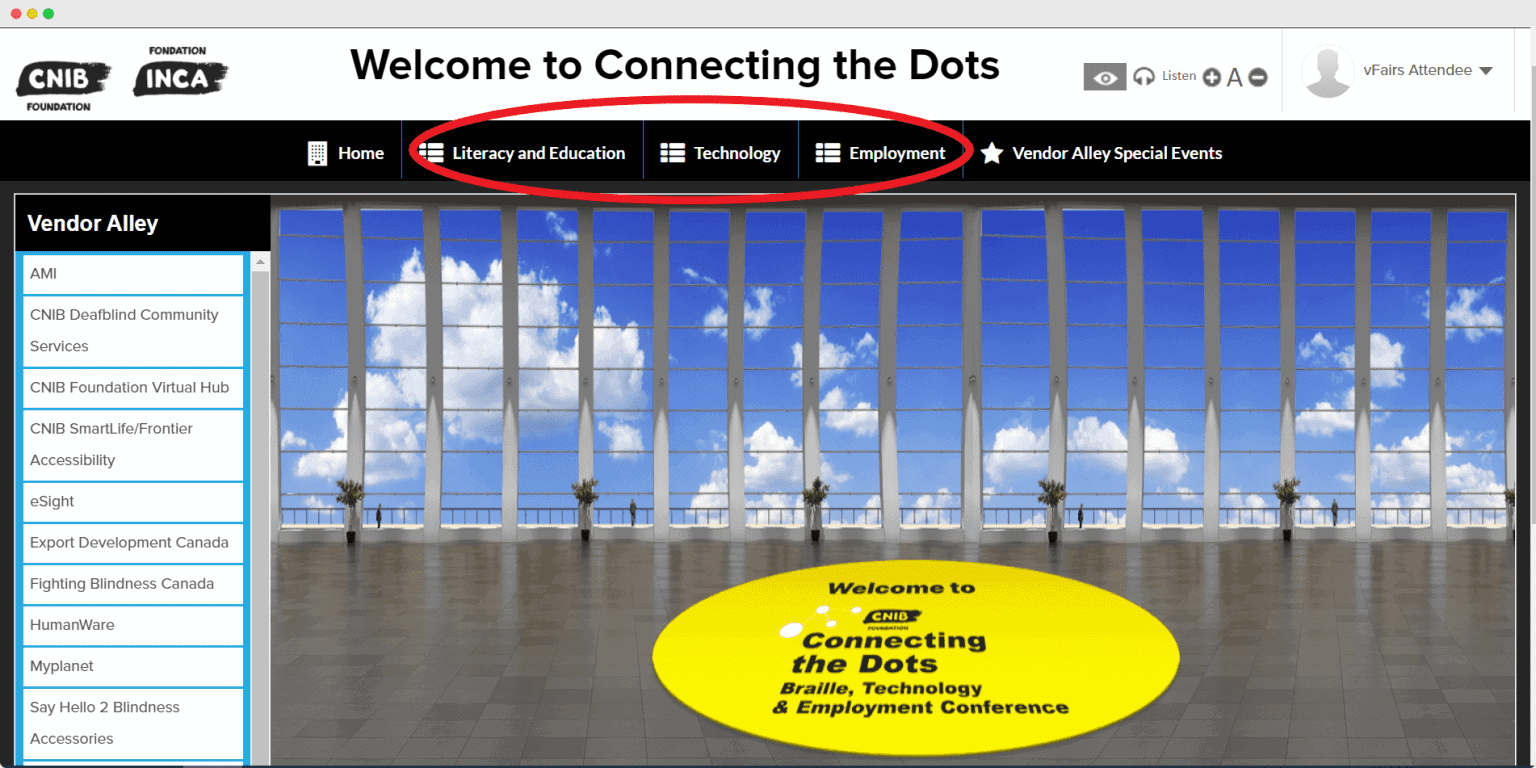
Event Technology – Revolutionizing Community Events
Technology has been increasingly significant in the events sector in recent years. Event technology like event management software, virtual event platforms, and onsite event technology help improve the event experience and foster community growth.
Event management software, for example, can help organizers interact with participants before, during and after the event. They can enroll the attendee in their email sequences for future communication, gather feedback through polls during the event and determine the success of the event using check-in data and user journey throughout the event. With an all-in-one event management solution, they get to do it all within one platform which is easier and less of a hassle.
In contrast, virtual event platforms may create engaging virtual events that bring people from all over the world together. Virtual events offer group chats, roundtables, and dedicated spaces for networking such as breakout rooms which help improve engagement and networking among attendees.
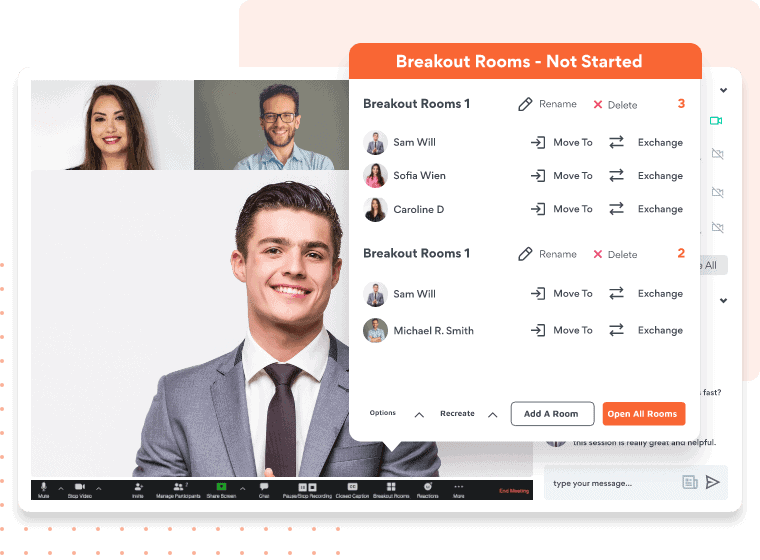
Event listing websites are also a great tool to help attendees learn about upcoming events. Moreover, integrations with social media platforms are also a great way for hosts to create excitement amongst their target audience. Attendees can easily see who is attending the event amongst their network, reach out to them and plan meetings etc.
Events are important in supporting community growth because they bring people together and provide chances for interaction and collaboration. However, as technology advances, event organizers now have additional tools for event marketing at their disposal to help communities grow. Event technology has transformed how events take place and how they are promoted and managed, making it easier for communities to connect and flourish.
Here are some of the ways event tech supports community growth:
- Streamlining Event Planning and Management
Event technology may make event preparation easier by automating operations like registration, ticket sales, and attendee tracking. This makes it easier for event organizers to manage community events and focus on providing participants with great experiences. Additionally, mobile app event technology may give real-time data and insights, allowing event managers to make data-driven decisions that can improve the overall event experience.
- Enhancing Engagement and Interaction
Event technology also allows attendees to interact with one another and with the event itself in innovative ways. Virtual and hybrid events, for example, can use technology like live streaming and virtual networking features like smart matchmaking and networking lounges to boost participation and interaction. These technologies can also facilitate meaningful conversations and develop long-term connections.
- Expanding Reach and Accessibility
Event technology can help to broaden the reach and accessibility of events by allowing people from all over the world to participate in community events. This allows groups to engage with people who would not be able to attend in-person community events, resulting in more opportunities for growth and collaboration. Furthermore, event technology can help organizers market events, attract new audiences, and increase attendance.
How to Plan and Set Up Community Events?
Here are a few steps to remember when planning and setting up community events:
Define Your Goals
Start by defining the purpose of your community event. Are you trying to raise awareness for a particular cause? Are you looking to build a sense of community among residents? Are you hoping to attract new customers to local businesses? Clarifying your goals will help guide the rest of your planning process.
Set a Budget
Determine the budget for the event, including the costs of venue rental, catering, entertainment, marketing, and any other necessary expenses. If it’s a virtual event, you need to determine the cost of the virtual event platform.
Create an Agenda
Plan for your event to ensure that there is enough time for attendees to participate in all the activities. Consider offering a variety of activities, such as workshops, engagement activities, and gamification sessions, to keep attendees engaged throughout the event.
Set Up Your Event
With vFairs, you can easily set up your in-person, virtual or hybrid event. The on-site venue gear provides quick badge printing and check-in. On the other hand, the event management software offers customizable templates for event design, a user-friendly dashboard for user management and event setup, and a range of tools to engage attendees.
Promote your event
Spread the word about your event using social media, flyers, posters, or other marketing channels. Encourage attendees to invite their friends and family members to help grow your community.
Go Live
Make sure everything is in place before the event begins, and be available to answer any questions or troubleshoot any technical issues that may arise for virtual community events.
Key Takeaway
Community events are now an integral part of marketing strategies for many organizations. Event technology has been a key driver of this shift, as it makes it easier to organize and manage events and create unique and engaging experiences for attendees. To achieve community goals and create a lasting impact, event professionals must explore available event tech providers and leverage them to their advantage. With the right tools, communities can create unique and engaging experiences that inspire attendees to get more involved, leading to improved community engagement and growth.


